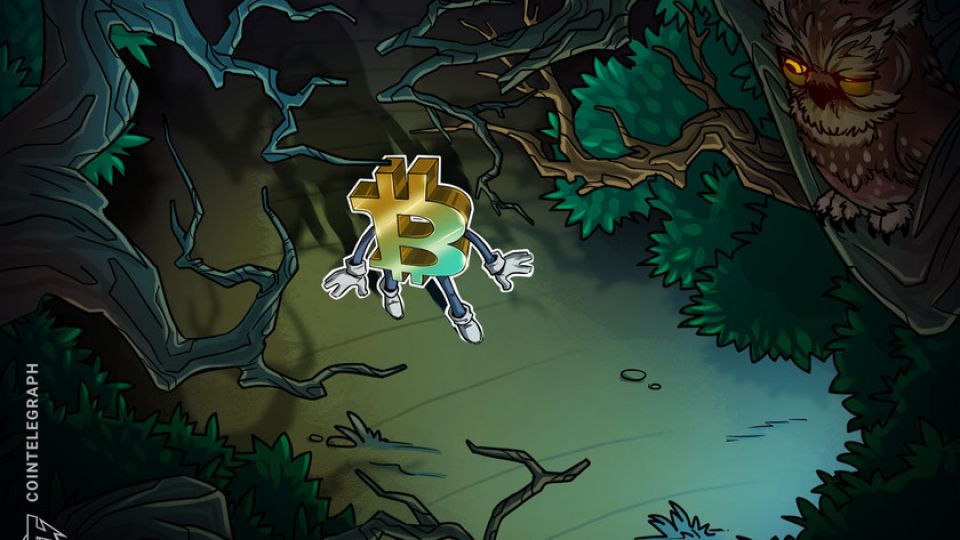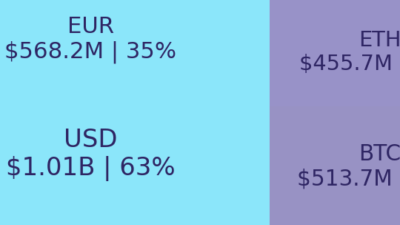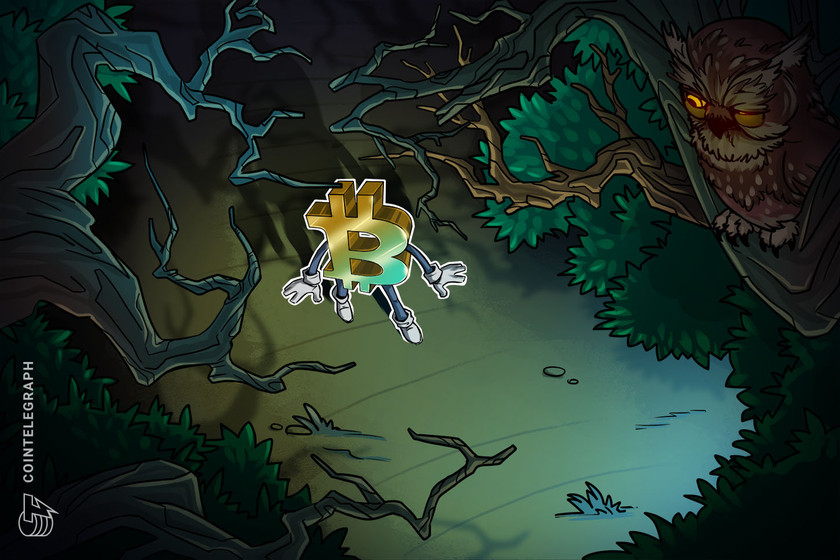
YFI, EOS and REV notched double-digit rallies as altcoins capitalized on the oversold bounce in Bitcoin and Ethereum price.
The markets were mixed on May 11 as Bitcoin (BTC) recovered from Monday’s drop to $53,000 by bouncing to $56,862 but the digital asset is still finding resistance at the $57,000 level.
Ether (ETH) also worked its way back above $4,100 but according to Cointelegraph analyst Marcel Pechman, the bullish sentiment for Ether seen in recent weeks has begun to fade as traders question whether new all-time highs will be sustainable in the short term.
Data from Cointelegraph Markets and TradingView shows that Bitcoin bulls defended a late-night sell-off on May 10 that briefly dropped the price of BTC below $54,000 before dip buyers gobbled up sell orders and lifted the price back above $56,000.
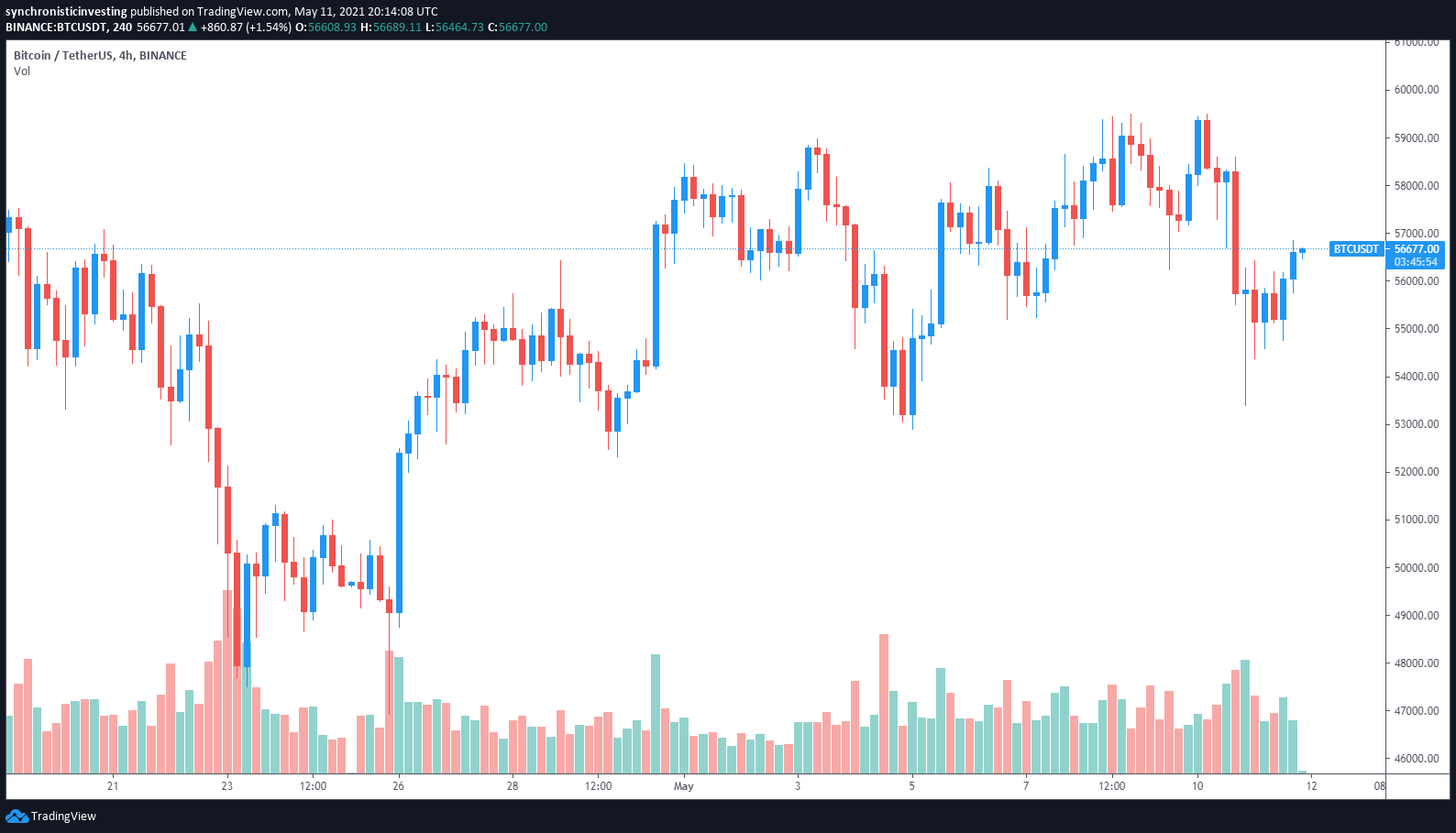
blue-chipWhile the blue chip cryptocurrencies have been stuck in a sideways market, canine-themed meme coins including Shiba Inu (SHIB) and Dogelon Mars (ELON) have followed Dogecoin’s (DOGE) lead and seen their prices explode for triple-digit gains.
Ethereum bulls take a brief breather
Bitcoin’s range-bound trading between $50,000 and $60,000 in recent weeks can partially be attributed to the rising price of Ether, which has caught the attention of institutional investors looking for exposure to more than just BTC. The growing demand for Ether can clearly be seen in the price action of the ETH/BTC pair.
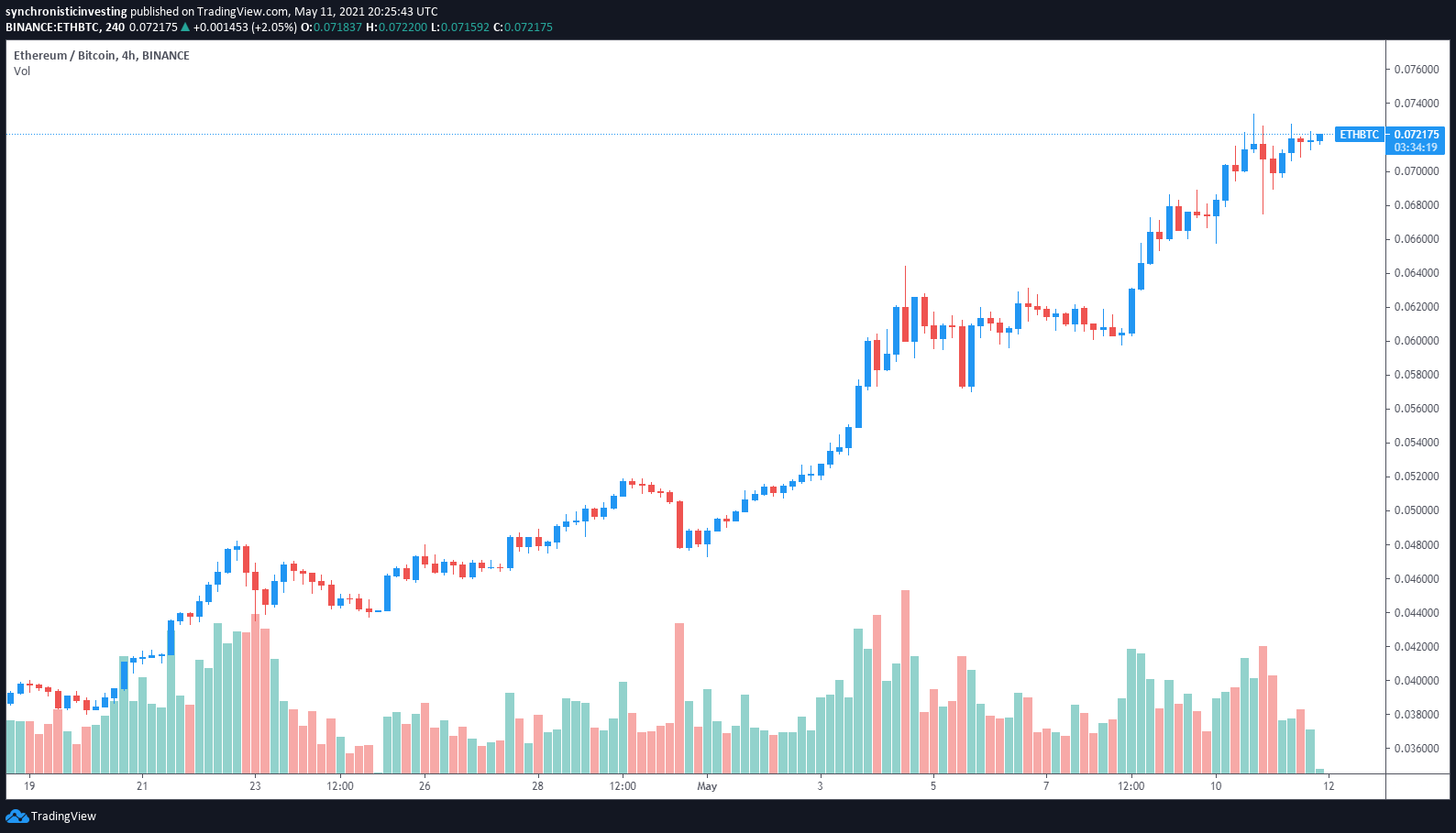
According to David Lifchitz, managing partner and chief investment officer at ExoAlpha, Ether’s recent all-time high was in part due to a “continued rotation away from Bitcoin” which helped push the price of Ether “as high as $4,214 before suddenly puking down to $3,658 (-13% in an hour).”
The downturn in the crypto market coincided with a selloff in the U.S. equity markets that hit the tech-heavy NASDAQ index especially hard. Lifchitz noted that Bitcoin and the other cryptocurrencies were eventually able to “bounce back half of the loss from the high.”
While the sell-off “could be explained by some correlation trades leading to a quick profit-taking in cryptos”, Lifchitz also pointed to the possibility of a more organized selloff where some traders took advantage of frothy market conditions.
Lifchitz said:
“It could also have been an organized selloff as Ethereum was at its ATH after a torrid ride (i.e. ETH was vulnerable to a quick drop) in order to spook the weak hands and shake them off, triggering a cascading selling effect, before buying back ETH on the cheap as shown by the even higher volume to buy right after the selloff.”
Lifchitz highlighted that just:
“Twenty-four hours later, Bitcoin is back in the middle of its twilight zone ($50,000 to $60,000) and Ether is slowly grinding higher above $4K. So all in all, it was just an ordinary day in crypto land.”
Further insight into the market moves over the past week was offered by Ben Lilly, co-founder and analyst at Jarvis Labs, who highlighted an increase in on-chain profit taking over the last week that had “lots of capital turning over throughout altcoins.”
Lilly said:
“As capital made its way from coin to coin, profits were being realized as Bitcoin traded sideways. What we saw on May 10 was the end of this phase.”
Altcoins lead the market higher
The overall altcoin market shook off the bearish moves seen in the larger-cap cryptocurrencies. EOS led the day with a 50% jump which took the price to $13.92 after Block.one announced that it had secured $10 billion in funding to launch an EOS-based cryptocurrency exchange named Bullish Global.
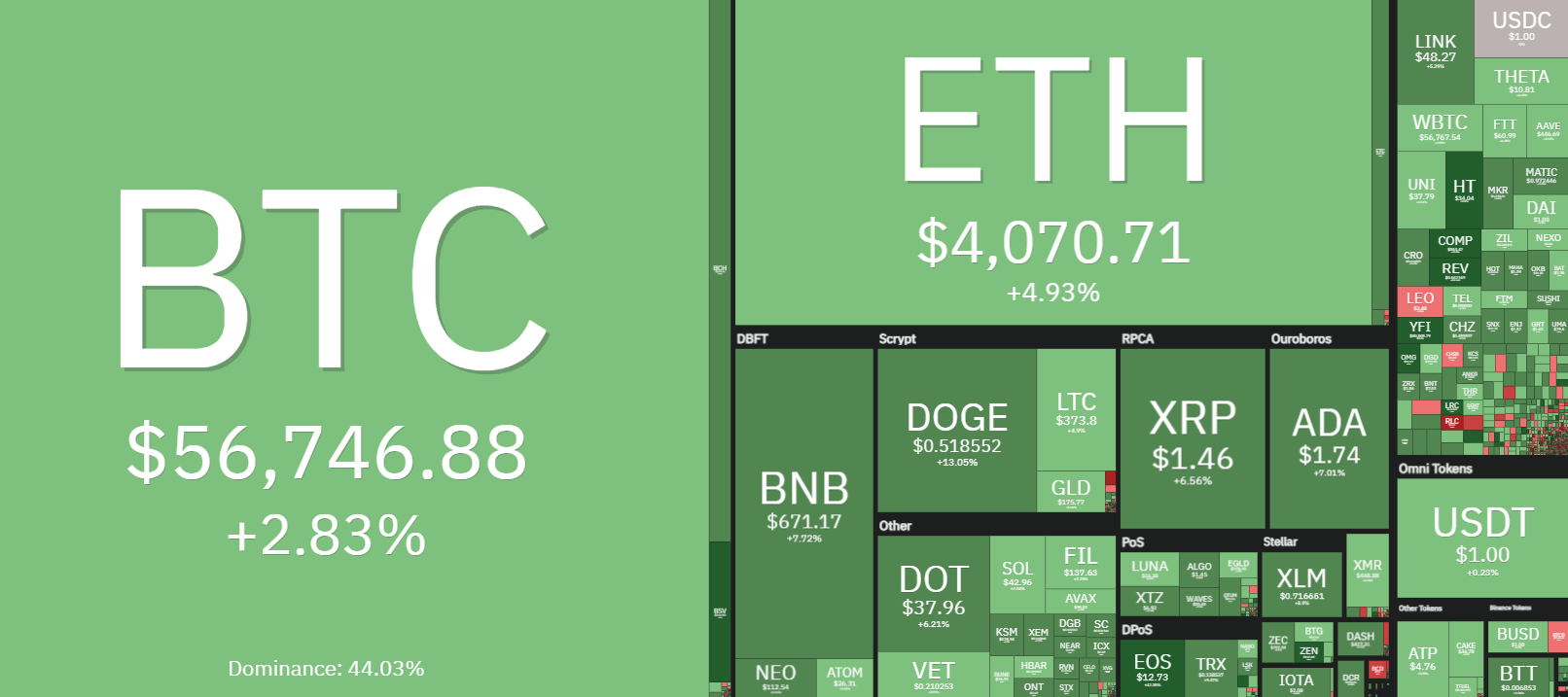
Yearn.finance (YFI) managed to break out of the trading range it had been stuck in to put on a 58% rally to a new record high above $80,000, while the price of Revain (REV) exploded 130% to reach a multi-year high at $0.049.
The overall cryptocurrency market cap now stands at $2.474 trillion and Bitcoin’s dominance rate is 42.8%.
The views and opinions expressed here are solely those of the author and do not necessarily reflect the views of Cointelegraph.com. Every investment and trading move involves risk, you should conduct your own research when making a decision.
Go to Source
Author: Jordan Finneseth

